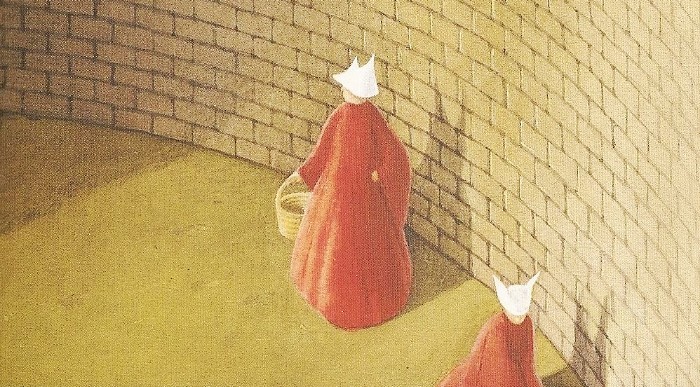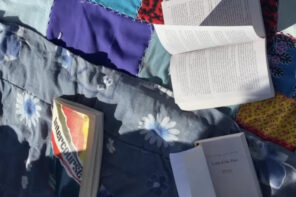Since the beginning of self-isolation, I’ve been trying to get through all of the books that have been sitting on my shelf. One of the novels I’ve always wanted to read is Margaret Atwood’s The Handmaid’s Tale: a novel which is considered a classic of Canadian speculative fiction. The winner of several prestigious literary awards, The Handmaid’s Tale has also been adapted into a popular television series, though this adaption received an unfavourable review from one of my colleagues.
Although The Handmaid’s Tale isn’t set in a pandemic, the dystopian tone resonates with the global state of affairs in 2020. From watching and reading U.S. news, it seems that the possibility of a zealous religious movement which takes over and collapses all other social structures might not be that far-fetched.
I was immediately struck by the novel’s atmosphere. The protagonist of the story, Offred, spends most of the narrative stuck inside her room. She is under constant scrutiny and supervision, and all she can do is lie in bed and daydream. Throughout the novel, she is constantly returning to her past or imagining about others in the present, thinking of her family members and close friends that she hasn’t seen or heard from in years.
Offred must keep her distance from everyone around her.
Even if there is no “social distancing” in Gilead, there is a great deal of emotional distance between the characters in the story. Offred must keep her distance from everyone around her. She can’t even be seen walking close to anyone, for fear that she will be accused of conspiracy. The story reads almost like a diary, with Offred documenting her experiences so that in the future, people will be able to understand what she went through.
Atwood’s book is the kind of story that lingers in your brain once it’s done, haunting you like her characters are haunted by the memories of their lives before the collapse. One of the most powerful expressions in the book was “nolite te bastardes carborundorum,” a Latin phrase which Atwood translates to,“Don’t let the bastards grind you down.” The sentence is first discovered by Offred on a piece of furniture in her room, carved by the last woman who lived there. In a world where women are no longer allowed to read, it is a sign of defiance, a hidden message to encourage strength. The little bits of humour and beauty in this story break up the harsher events, even if it is all told through a somewhat detached haze.
Overall, I think it was the end of the book that left the longest-lasting impact upon me. The ending is ambiguous, and it is unclear if Offred is finally escaping to some kind of safety, or being put up on the chopping block. It is completely up to the reader to imagine the protagonist’s fate.
Ironically enough, this grim book made confinement feel better for me.
I know there is a sequel, but I feel this ending is perfect for the book and for our current situation. COVID-19 has inflicted so much fear upon our lives, and it is unclear when—if ever—things will return back to some kind of normal. Being able to accept the uncertainty and to still muster hope that things will turn out alright, even if prospects look bleak, is comforting. If Offred can walk forward into the unknown, then so can I.
Ironically enough, this grim book made confinement feel better for me. Even if I can’t physically leave my house, I’ve found a new appreciation for the fact that I have access to vast, uncensored media, and that I don’t live in the dystopic situation described in Atwood’s book. Things may seem bad, but they could always be worse. As long as Offred is alive to tell her story, she is able to force herself to keep going, ultimately coping with her dismal situation.
Like Offred, we are trapped in a situation more or less beyond our control.
There is no one-size-fits-all, “correct” way to make it through this quarantine. If you are lucky, and you do not have to work on the frontlines, you may be facing some newfound boredom. Some people dive into social media or TV to escape, others emphasize the importance of maintaining productivity in stressful times. Like Offred, we are trapped in a situation more or less beyond our control. All we can do is try our best to keep ourselves alive and hope for the best. I found reading Atwood’s work simultaneously comforting and disturbing, and it broke up the monotony of self-isolation for a few days. The Handmaid’s Tale might not always be optimistic, but it was exactly what I needed right now.







